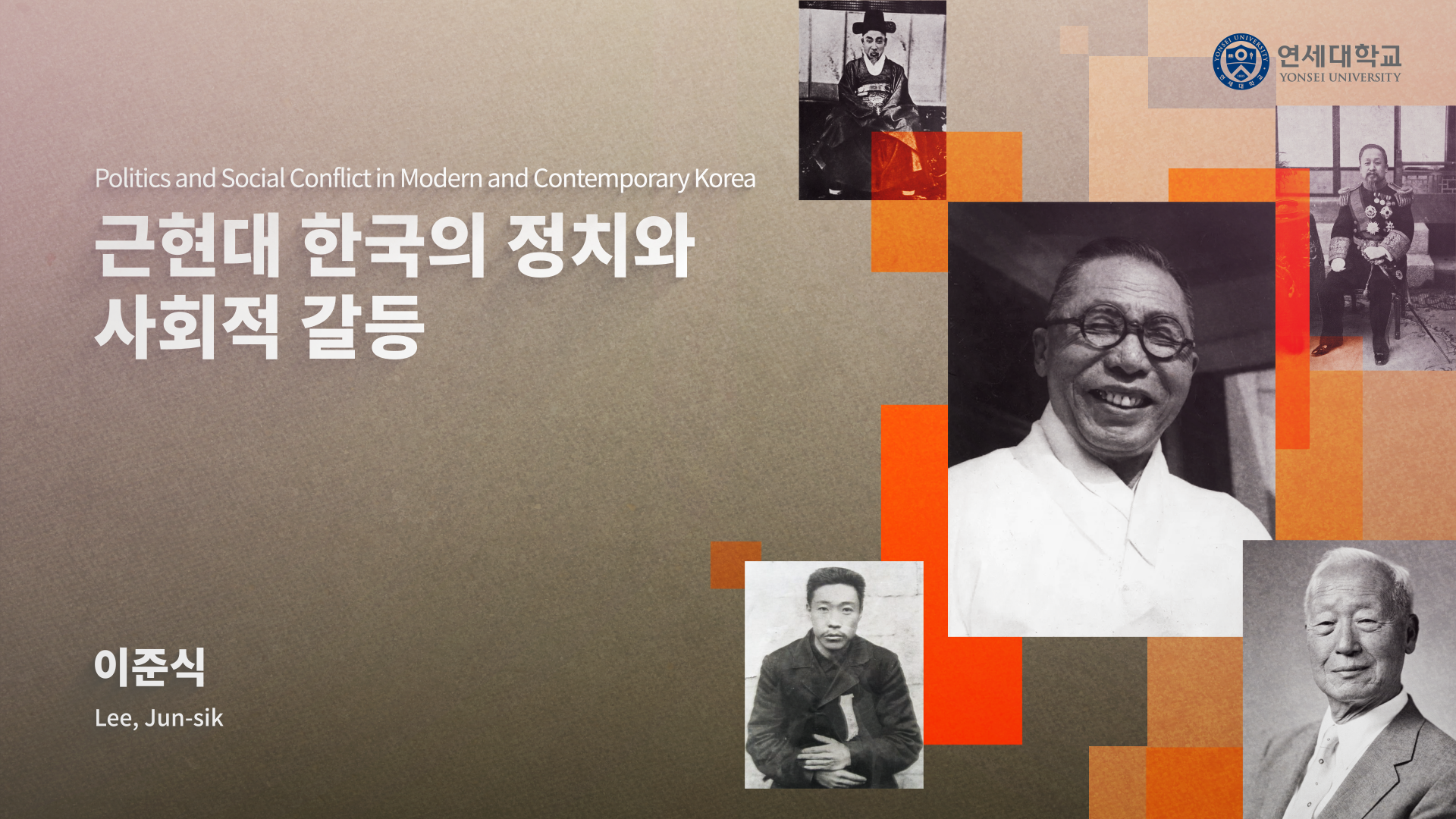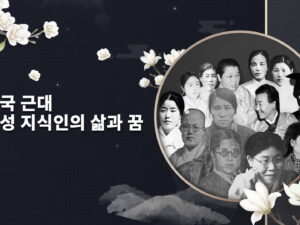Politics and Conflict in Modern and Contemporary Korea
This course examines the patterns of political conflict and confrontation in modern and contemporary Korea through several key themes.
Instructor
igkslms
- Description
- Curriculum
- Notice

Course Introduction
This course examines the patterns of political conflict and confrontation in modern and contemporary Korea through several key themes.
Learning Objectives
By understanding the conflicts and confrontations surrounding politics within the broad historical currents of the modern and contemporary eras, students will be able to learn how specific historical events connect to our lives today.
1. Confrontation and Conflicts Over the Opening of the Country to Outside and Enlightenment
-
11-1. Foreign Invasions and External Conflicts
-
21-2. Opening of the Country under Pressure from Foreign Powers
-
31-3. The Enlightenment School’s Responses to the Invasions of the Great Powers and the Unequal Treaties
-
41-4. The School of Defending Orthodoxy and Rejecting Heterodoxy’s Responses to Imperialist Invasions and Unequal Treaties
2. Crossroads for the Establishment of a Modern Nation-States: Reforms from Above
3. Crossroads for the Establishment of a Modern Nation-States: Donghak Peasant Revolution
4. Forced Annexation and the Japanese Colonial Rule: A Crossroads to Anti- or Pro-Japanese
-
134-1. Independence Activists Who Chose the Path of Anti-Japanese Struggle in the face of a National Crisis (Part 1)
-
144-2. Independence Activists Who Chose the Path of Anti-Japanese Struggle in the face of a National Crisis (Part 2)
-
154-3. Pro-Japanese Collaborators Who Took Advantage of the Fall of Joseon to Take the Path of Pro-Japanese Activities
-
164-4. Pro-Japanese Collaborators Who Used the Independence Movement as an Opportunity to be Pro-Japanese
5. Japanese Colonial Rule, Ethnic Discrimination, and the Directionality of the Independence Movement
6. Political Conflict Over the Issue of Liquidating Pro-Japanese Collaborators after Liberation
-
216-1. The Independence Movement Camp’s Efforts to Punish Pro-Japanese Collaborators During the Colonial Period
-
226-2. Legalization of the Liquidation of Pro-Japanese Collaborators after Liberation
-
236-3. The Counterattack of the Syngman Rhee Government and Pro-Japanese Forces after the Enactment of the Anti-Nationalist Law
-
246-4. What the Liquidation of Pro-Japanese Collaborators by the Special Investigation Committee of Anti-National Activities Left Behind
7. Syngman Rhee's Dictatorship, Election Fraud, and the April Revolution
8. Modern and Contemporary Korea, a Century of Genocide
Lee, Jun-sik
Director, The Korean Council for Justice and Remembrance for the Issues of Military Sexual Slavery by Japan










